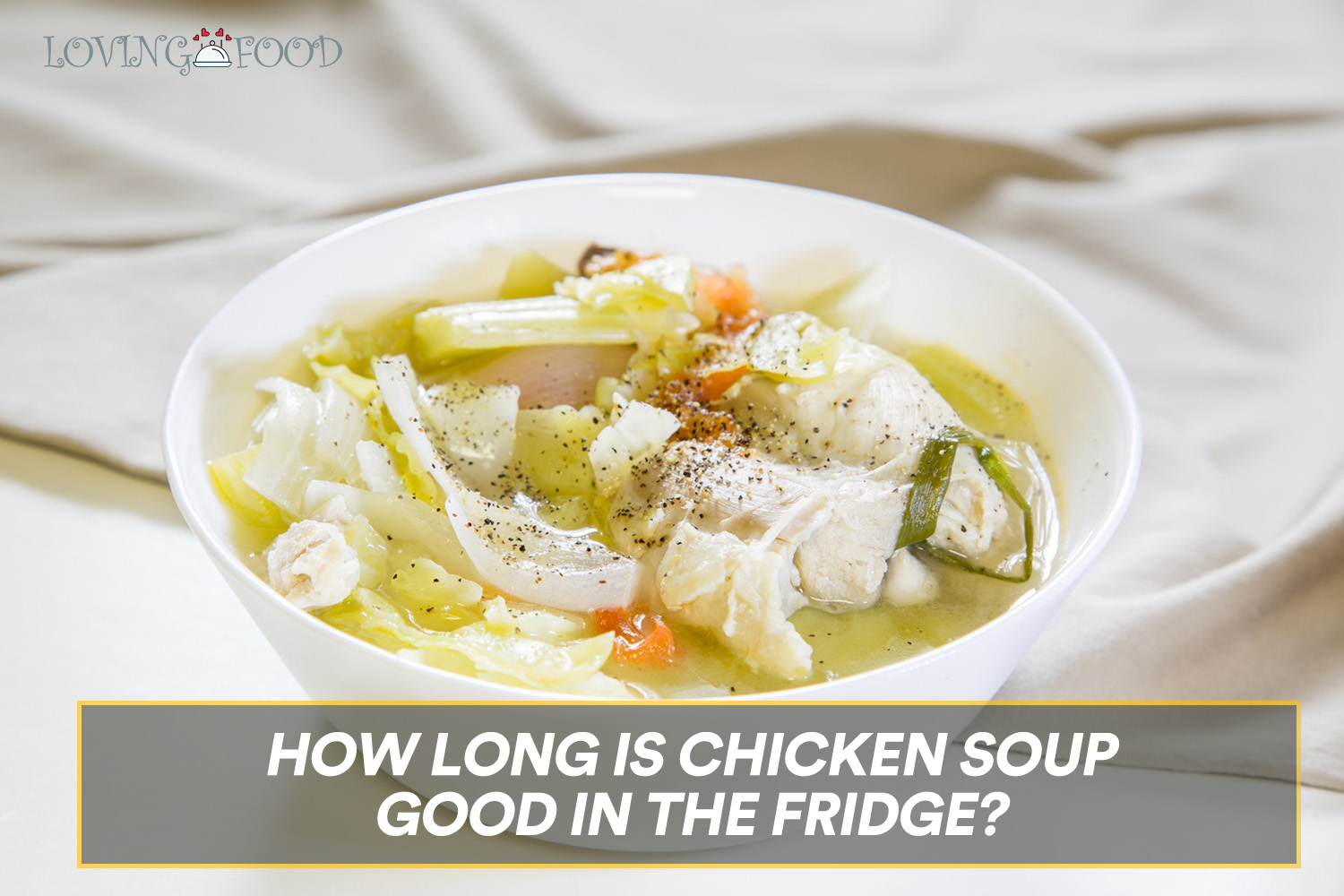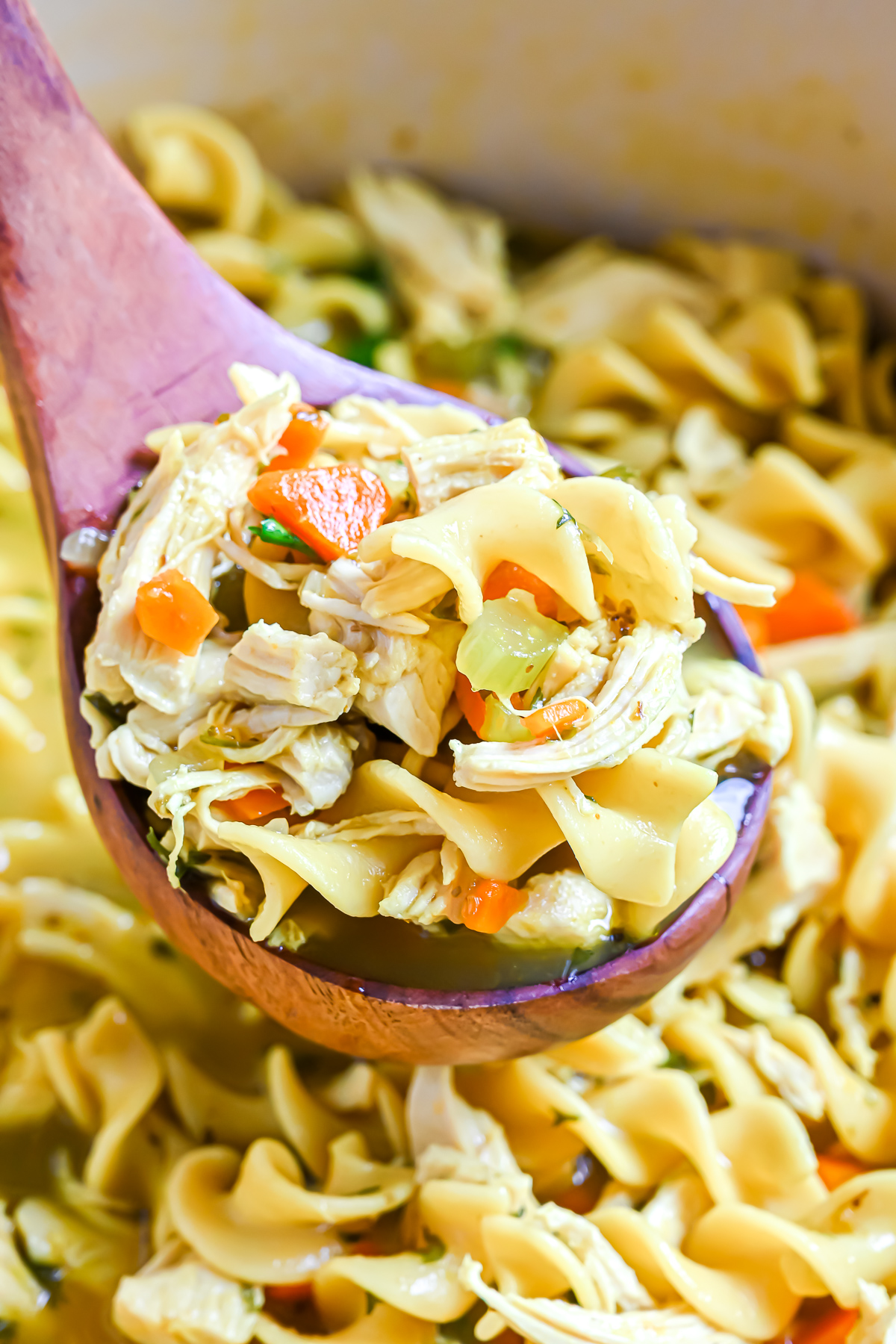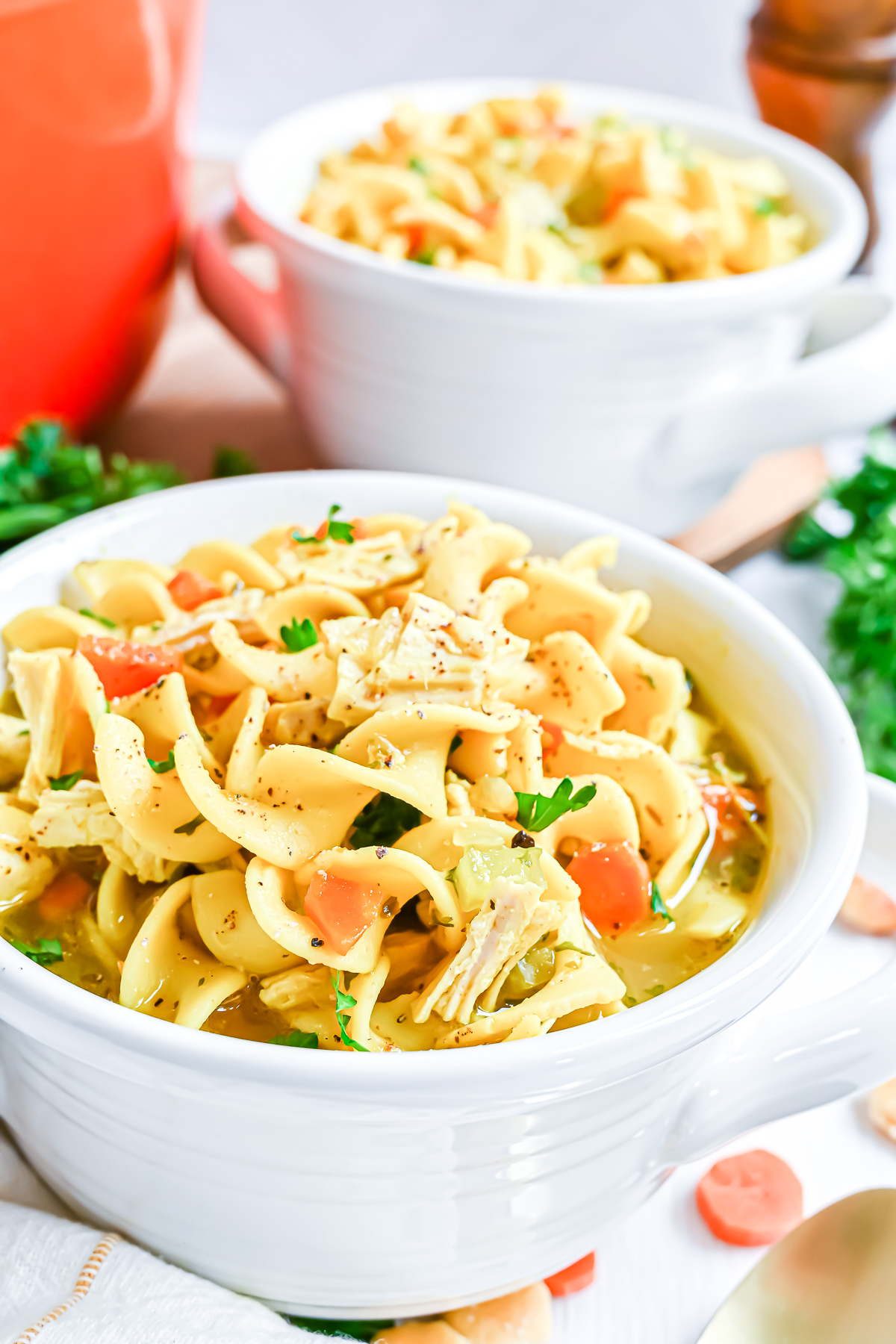Chicken noodle soup is a classic comfort food that never seems to go out of style. Whether you’ve made a big batch from scratch or have some leftovers from a restaurant meal, you may be wondering how long chicken noodle soup lasts in the refrigerator.
Proper storage is key for keeping chicken noodle soup fresh and avoiding food waste. In this article, we’ll dive into all the details you need to know to maximize the shelf life of your chicken noodle soup.
The Shelf Life of Chicken Noodle Soup
The shelf life of chicken noodle soup depends on whether it is homemade or store-bought.
Homemade Chicken Noodle Soup
Homemade chicken noodle soup will generally last 3 to 4 days in the refrigerator when stored properly in airtight containers The shelf life is shorter than store-bought since there are no preservatives. Make sure to cool the soup quickly before refrigerating
Store-Bought Chicken Noodle Soup
Store-bought chicken noodle soup, either canned or in cartons, will keep in the fridge for 4 to 5 days after opening Check the use-by date on the packaging and follow storage instructions for maximum freshness Once opened, try to use it within a few days.
How to Store Chicken Noodle Soup
Proper storage is essential for getting the most out of your chicken noodle soup Here are some tips
-
Allow soup to cool completely before refrigerating, within 2 hours after cooking.
-
Transfer to airtight containers or resealable plastic bags.
-
If storing a large portion, divide into smaller containers to allow for fast cooling.
-
Make sure lids are tightly sealed to prevent leaks or spills in the fridge.
-
Refrigerate soup immediately at a temperature below 40°F.
-
Place soup toward the back of the refrigerator, away from the door.
-
Label containers with date and contents.
Freezing Chicken Noodle Soup
Freezing is a great way to extend the shelf life of leftover chicken noodle soup. It can keep in the freezer for 2 to 3 months. Here’s how to freeze it properly:
-
Let soup cool completely before freezing.
-
Portion into freezer-safe containers or bags, leaving 1⁄2 inch of headspace.
-
Remove as much air as possible and seal the containers tightly.
-
Label bags or containers with contents and freezing date.
-
For best quality, use frozen chicken noodle soup within 1 to 2 months.
-
Thaw in the refrigerator before reheating on the stovetop or microwave.
Signs Your Soup Has Gone Bad
Check your chicken noodle soup for these signs of spoilage before eating:
-
Change in color or dull, murky broth
-
Unpleasant sour odor
-
Mold growth
-
Slime, gooey texture, or sediment in broth
-
Fizzing, bubbling, or spurting when container is opened
-
Changes in consistency of noodles or chicken pieces
If you notice any of these warning signs, it’s best to discard the soup. Don’t take risks with food safety.
Safely Reheating Chicken Noodle Soup
To enjoy chicken noodle soup that has been refrigerated or frozen, reheat it properly:
-
On the stovetop over medium heat, stirring occasionally until steaming hot.
-
In the microwave in 30 second intervals until heated through, at least 165°F.
-
Bring all leftovers to a full rolling boil before serving.
-
Only reheat the amount you plan to consume.
-
Do not reheat soup more than once.
With proper storage techniques, you can enjoy fresh, delicious chicken noodle soup for up to a week in the fridge. Freezing expands the shelf life even further. Keep an eye out for any signs of spoilage and follow food safety guidelines for reheating. Now go enjoy a warm, comforting bowl of chicken noodle soup!

How Different Types of Noodles and Ingredients Affect Soup Storage
The type of noodles and ingredients used in homemade chicken soup can significantly impact its shelf life and freezing methods. For example:
- Egg Noodles. These tend to absorb more liquid, becoming mushy when reheated after freezing. If you plan to freeze the soup, consider cooking the egg noodles separately and adding them fresh before serving for the best quality.
- Hearty Ingredients. Using ingredients like whole chicken, chicken thighs, or homemade chicken stock generally holds up better during freezing than creamy soups or milk-based soups, which can separate upon reheating.
- Fresh Herbs and Vegetables. While adding a burst of flavor, these can lose their texture over time, especially when frozen. For best results, add fresh herbs after reheating the soup.

Best Practices for Storing Homemade Chicken Noodle Soup
To ensure your homemade chicken noodle soup remains safe to eat and retains its best quality, follow these simple steps:
- Cool the Soup Completely. After cooking, let your soup cool to room temperature before transferring it to the refrigerator. Be sure to do this within two hours of cooking to minimize the risk of food poisoning. You can speed up the cooling process by transferring the soup to smaller, shallow containers.
- Avoid Hot Storage. Never put hot soup directly in the fridge, as it can raise the temperature and potentially spoil other foods.
- Airtight Containers. Use airtight containers to prevent moisture and air from getting in, which can cause the soup to spoil faster. – **Material:** Glass or BPA-free plastic containers are ideal. Avoid storing soup in metal containers, as they can affect the flavor over time.
- Date the Container. Label your container with the date you made the soup. Homemade chicken noodle soup typically lasts 3 to 4 days in the refrigerator, so its essential to keep track.
- Refrigerator Temperature. Make sure your refrigerator is set to 40°F (4°C) or below. This optimal temperature slows down the growth of bacteria, keeping your soup safe to eat for longer.
- Avoid Contamination. Always use clean utensils when serving or handling the soup to avoid introducing bacteria. Avoid tasting the soup directly from the storage container to prevent contamination.
- Reheat Safely. Bring the soup to a simmer over medium heat to ensure its heated evenly when reheating. This is especially important for creamy soups or soups with egg noodles that might have absorbed a lot of liquid.

A few days after making that bowl of soup, you should check for signs of spoilage.
- Sour Smell or Off-Odor. One of the first signs of spoilage is an unusual, sour, or unpleasant smell. If your chicken noodle soup smells off in any way, its best to discard it.
- Appearance Changes. If the broth looks cloudy, has changed color (e.g., darker or greenish), or has a strange film on the surface, it could indicate bacterial growth. Visible mold on the surface or around the edges of the container is a clear sign of spoilage. Even if mold appears in only one part, the entire soup should be thrown out.
- Texture Changes. If the noodles, chicken, or broth feel slimy or sticky, this strongly indicates that the soup is no longer safe to eat. While some separation of broth and ingredients can be normal, excessive or unusual separation can indicate spoilage.
- Unusual Taste. If the soup tastes sour, bitter, or simply not how it should, its a sign that it has spoiled. Always taste cautiously if youre unsure about the soups freshness.
Chicken soup 101
FAQ
Can I eat chicken soup after 5 days?
Can soup last 7 days in the fridge?
A general rule of thumb is that soup can be stored in the refrigerator for about three days, but you should always taste your dish before deciding to reheat.Jan 31, 2025
How do you know if chicken noodle soup has gone bad?
Sour Smell or Off-Odor. One of the first signs of spoilage is an unusual, sour, or unpleasant smell. If your chicken noodle soup smells off in any way, it’s best to discard it.
Can you eat soup that is 5 days old?
… the United States Department of Agriculture (USDA), soups and stews containing meat and vegetables will be safe to eat for three to four days if refrigeratedDec 18, 2023
How long does chicken noodle soup last in the fridge?
Whether you make a big batch of homemade chicken noodle soup or buy it from the store, it’s important to know how long it can last in the fridge before it goes bad. Do you like this article? The general recommendation is that chicken noodle soup can last in the fridge for 3-4 days.
What temperature should chicken noodle soup be refrigerated?
The temperature of the fridge is critical in determining the shelf life of chicken noodle soup. The ideal temperature for storing chicken noodle soup is between 39°F and 41°F (4°C and 5°C). If the temperature is higher than this range, bacterial growth can occur, reducing the shelf life of the soup.
How do you store chicken noodle soup?
The way you store chicken noodle soup in the fridge can significantly impact its shelf life. It’s essential to store it in a covered container to prevent contamination and other flavors from affecting the soup. You can use a glass or plastic container with a tight-fitting lid or a zip-top plastic bag.
Can you make chicken noodle soup ahead of time?
Yes, you can make chicken noodle soup ahead of time and store it in the fridge for a few days. Just be sure to cool it completely before storing. It’s also a good idea to wait until you’re ready to serve it before adding the noodles to prevent them from getting soggy. Is it safe to leave chicken noodle soup out at room temperature?
Can Instant Pot chicken noodle soup be refrigerated?
Store Instant Pot Chicken Noodle Soup in an airtight container in the fridge for up to 3-5 days. If possible, store chicken noodle soup SEPARATE from the cooked egg noodles so that the noodles don’t get mushy. Freezing chicken noodle soup is super simple.
Can chicken noodle soup be frozen?
Yes, chicken noodle soup can be frozen for longer storage. It’s best to freeze it in individual portions for easier reheating. Be sure to cool the soup completely before freezing and use airtight containers to avoid freezer burn. How do I safely reheat chicken noodle soup?
